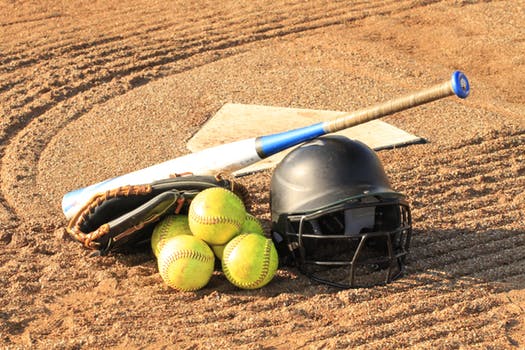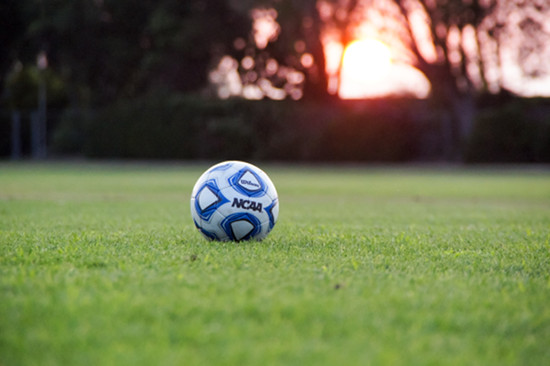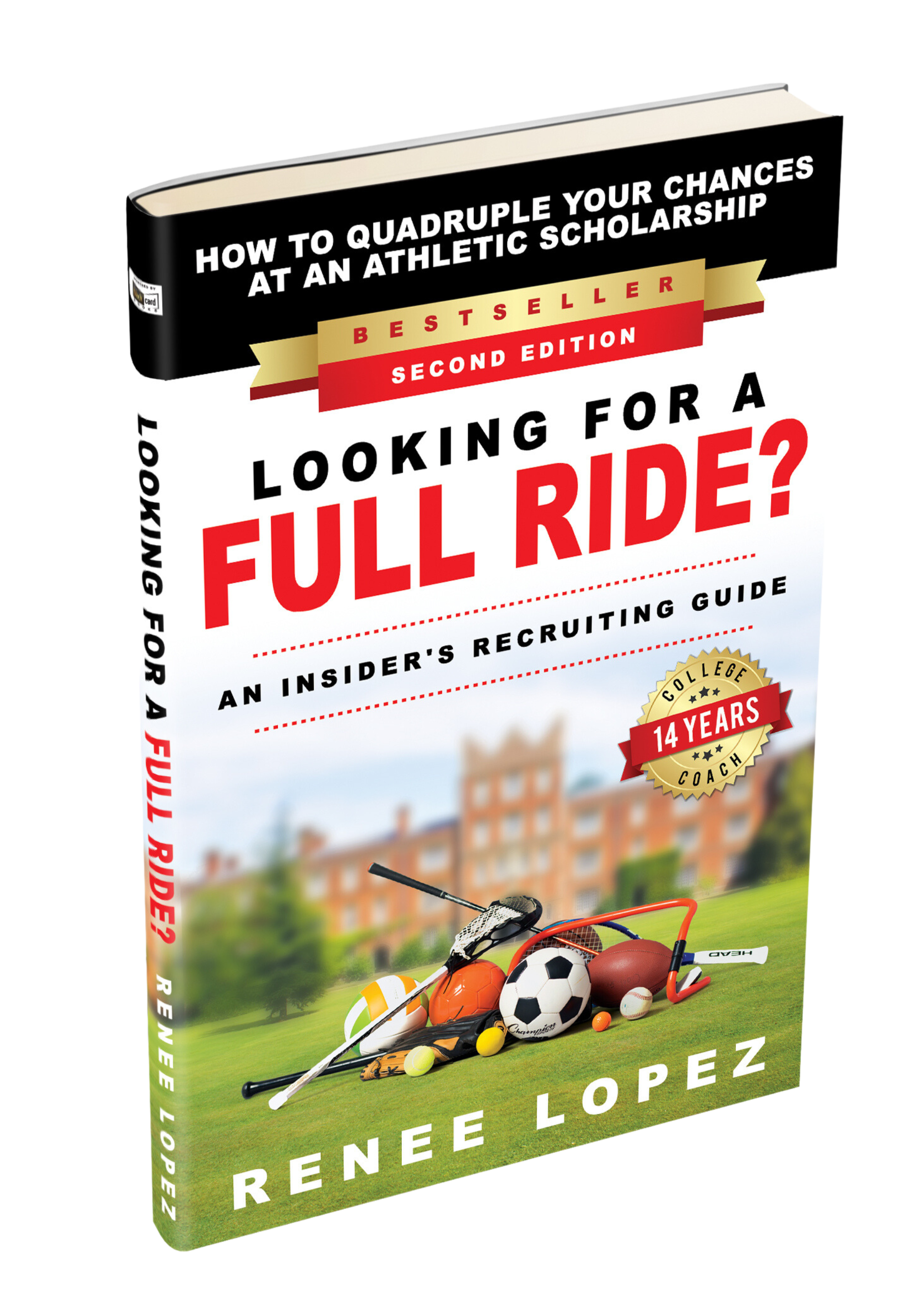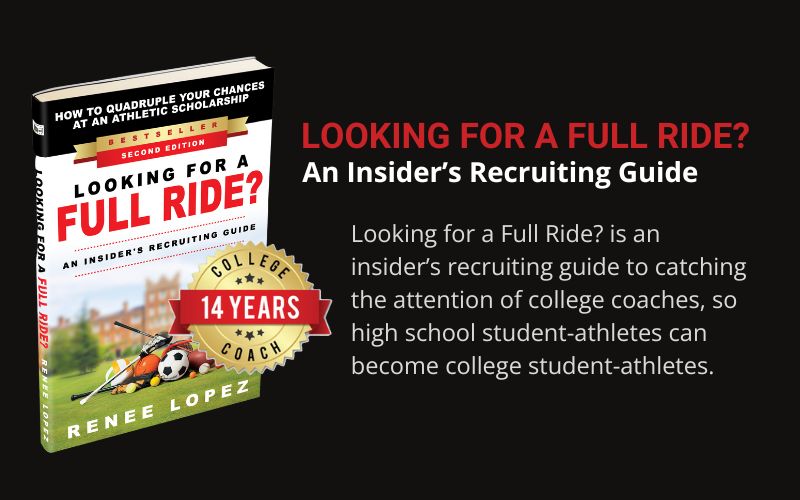If you want to stand out from the crowd of recruits, it is important to be prepared to ask questions to the college coach on the phone or on a campus visit. Coaches speak with literally hundreds of prospective students every year who all want athletic scholarships. They utilize those conversations to evaluate your maturity, commitment in the classroom, and leadership skills. Here is a sampling of questions you should be asking a coach on the phone or in their office:
1.) What are the core values of your program?
This is a very key question for you in understanding what is prioritized in the athletic program. Every coach and student-athlete should be able to rattle this off as quick as their ABC’s. If they can’t, it may be showing you the lack of vision for the program. As a college coach, our team used the acronym to describe our priorities: CIA: Character, Integrity, and Accountability. “Character” described becoming who you are called to be; “Integrity” focused on doing the right thing, especially when no one was watching, and “Accountability” emphasized our teammates and coaches holding us responsible for our actions. Each coach will have their own pillars they use for their programs, but it is important for you to understand their priorities for the next 4 years.
2.) Why do you coach? What is your overall coaching philosophy?
This digs a bit deeper to learn a bit more of the coach’s heart. Their answer may be staged as coaches get asked this all the time, but you can hopefully see their passion for impacting the lives under their care. It should also reinforce the core values discussed. A great lead-up to this question can be “Why did you choose to get into college coaching?” and a great follow-up is, “What makes you keep coming back year after year?”. The motive is to see their authenticity is for serving their student-athletes versus using them as chess pieces to win games. These questions can reveal a lot!
3.) What is a typical week like for an athlete in season? Out of season?
Most coaches will tell you about a typical practice schedule on the field/court/pool, but it’s important to ask about everything beyond actual practice time. What study hall hours are required for student-athletes as freshmen? Does that change after your first semester, based on your GPA? What about weight training times? How many days a week? What expectations are for me before and after practice in the training room? (stretching, ice baths, treatments, etc) How often do you watch film? What about leadership development or mental skills training programs? 
4.) How do your student-athletes work through missed class time?
Most athletic departments will have a strict procedure of letters or emails going to professors at the beginning of a semester. However, it is typically the student’s responsibility to make up work PRIOR to traveling, unless a professor has agreed otherwise. Some schools allow coaches to proctor an exam on the road or even take it before you leave. Other professors may allow you to take it online at the same time, and some (very kind!) rare instructors allow you to do it upon your return. You should ask also about academic resources available for student-athletes if they are needing a little extra help in their classes.
5.) I want to major in ________________. What challenges do you see for that major and being a student-athlete?
Depending on the university, some specific majors may not allow you to be an athlete for 4 years and complete your degree on time. Often times, it comes with majors that are heavy in practicums/internships, especially in the junior and senior years. It also may depend on the time of year your championship season is for your sport (i.e. are you a softball/baseball player who would be looking to student-teach in the spring of your senior season?). I would recommend you research this, especially if you wish to major in nursing, education, athletic training, engineering, international business, and any others requiring an internship to graduate.
6.) What are your recruiting needs for my recruiting class in terms of position? Leadership?
This is a great question to get a real feel for how interested a coach may be in you as both an athlete and a leader. It’s important to understand the team dynamics for the year you join the team. For example, will they be graduating a lot of seniors the year before you would enter or after your freshman year? It could impact the success of the team and also the amount of playing time available.
7.) (If they have seen you play already,) What role do you see me in for the team as a freshman vs. later in my career?
In theory, the last question would lead into the coach already addressing your role. It is important not to ask “will I start?”, as no coach can fully predict, nor want to promise that to you. (I would be cautious if they do!). A variety of factors influence those decisions each season including returning student-athletes, injuries, tactical decisions, and opponent match-ups. However, you should inquire about their overall plan for you.
8.) Beyond high performance on the field/court and in the classroom, what intangibles are you looking for in a student-athlete?
It is important for a coach to know that you want to be a good teammate and help lead the team. By asking this question, you can demonstrate your maturity in understanding the bigger picture, beyond your athletic abilities contributing on the court/field/pool. Their answer will also typically give you insight into their values.
9.) How should I handle the admissions process? Would I go directly through the Admissions office or through you? Which testing do you prefer ACT or SAT?
The majority of schools will want you to do the application process online through the Admissions office. During the fall, however, that office often gets pummeled with applications so many coaches keep a close eye on the processing of their recruits. For most schools, there is great value in letting the coach know you have completed the application process, essays, applied for financial aid, and submitted your test scores.
10.) What housing options do you encourage for your student-athletes? Preferred locations? Do they live with other athletes?
There are typically specific housing placements for freshmen versus upperclassmen. Make sure to note this information so that when you visit the school website you can understand the floor plan, furniture provided, location on campus, etc. Some coaches also look to house student-athletes together and will pair you up. On other campuses, it is recommended student-athletes live with nonathletes to create some unique bonds outside of athletics. After all, you need some fans at your competitions, right? 
11.) What typical teambuilding activities does the team do each year?
The response to this question will likely provide an understanding of the operating budgets of the program as well as how much they value teambuilding. Some elite level (well-funded) programs, travel out of state for a few days of training and bonding during preseason. Most do 1-2 days of a retreat, ropes course, and/or mental skills training early in their season. If the coach does not have a teambuilding plan, you may want to further investigate the team culture.
12.) What does the team do for fun on their days off?
While it is important for you to know the coach’s answer to this question, it is also valuable for you to ask this question to the team eventually. Is having a car necessary to get to the grocery store, the movies, or out for dinner? How much does the team hangout together when it’s not mandatory? Although I would not recommend asking (as your inquiry could be interpreted wrong), but you will want to get an understanding of how much of a priority is partying to the team, especially when you interact with the team on a campus visit. If anyone tells you the team never makes bad decisions, even at a Christian college, I would be cautious in being naïve.
13.) What is the next step in the recruiting process for me?
This is a very valuable question and the proper way to let the coach be honest with you. If they have not seen your athletic abilities yet, they may be asking for you to attend an upcoming camp, send them your schedule, or send a video link. If they have seen you perform already and depending on your school year, they may be looking to get you through the application process, come to campus, or evaluate eligibility. If this is your first conversation with the college coach, I would not recommend asking about an athletic scholarship at this time to NCAA Division I, II, NAIA, or JUCO coaches. (NCAA Division III cannot provide athletic scholarships). You want them to walk away from your time together thinking, that was a mature individual who is really investigating their options. Asking that one question regarding finances on an initial conversation makes a coach think that is your priority for choosing a school. While it may be an important factor for your decision, I recommend that you save this for a later conversation unless the coach initiates it.
Would you like help with the college recruiting process?
1. Go to www.lookingforafullride.com to get your FREE Report: Strategies to Emailing A College Coach.
2. Want some help with the recruiting process? Join some of our 9 Facebook Groups:
- Parents of High School Student Athletes Walking Through The Process (All Sports)
- Beyond Xs & Os 4 HS Athletes: Health, Recruiting, Team Building, Mental Training (All Sports)
- Athletic Recruiting Education for Principals, AD's, and Counselors (All Sports)
- Club/HS Coaches Learning College Recruiting Process (All Sports)
- Play College Soccer (Soccer Specifically)
- College Recruiting for GK's (Soccer Specifically)
- Mindset & Leadership Lessons for Athletes, Coaches/Teachers, & Business Leaders (All Sports & Business Leaders)
- Positive Team Building for Pro, College, HS & Youth Coaches (All Sports)
- Christian Competitors (Coaches & Athletes Serving Christ @Field/Court/Gym) (Sports Ministry for All)
3. Would you like her to do individual consulting with your family to get an insider’s perspective?
Email info@lookingforafullride.com for more details.
4. Did you know Coach Renee Lopez can come to your school or sports organization?
Email info@lookingforafullride.com for more details.
Coach Renee Lopez

As a 17 year coaching veteran, Renee Lopez is a recruiting expert for high school student athletes. She uses her NCAA Division I, II, and NAIA Head Coaching experience to help families navigate the recruiting process to be identified by college coaches and help them find the right “fit” for playing at the next level.
She presents recruiting seminars across the country, has recently been featured on ESPN Radio, and is the author of the book, “Looking For A FULL RIDE?: An Insider’s Recruiting Guide” where she interviewed 65 college recruiters across all sports and college levels.
She also does private consulting for student-athletes and their families to help in understanding the often daunting process of recruiting. (See one family’s testimonial.) If you are looking for help in the college recruiting process, please email Coach Renee Lopez at info@lookingforafullride.com.

